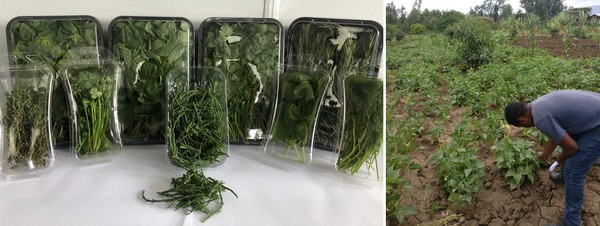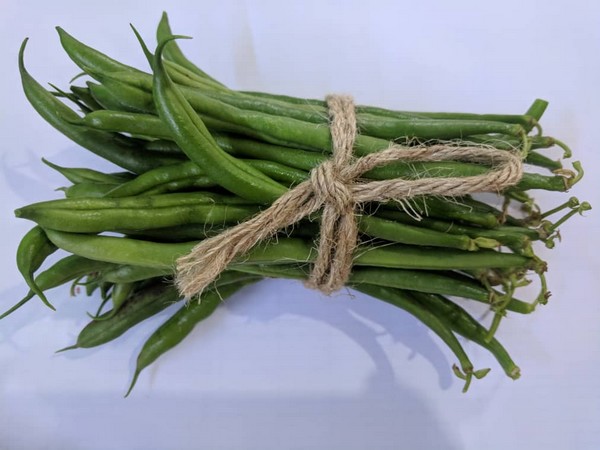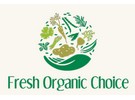Herb growers, in general, are increasingly looking for zero residue products for that market. For Wilco Heemskerk of the Dutch company, Fresh Organic Choice, there's, however, only one thing that matters - 100% organic herbs, delivered throughout the year.
"Our sourcing and strength are designed in such a way that we can supply organic herbs to the market year-round," says Wilco. "Between May and September, we get these from our growers in the Netherlands and Germany. We also get herbs from abroad. Mainly from Southern European countries such as Portugal, Spain, and Italy."
"We have a wide range of organic herbs that are added to meal boxes. We sell to retailers, wholesalers, and hospitality industry suppliers too. This spread has helped us to get through the corona crisis. Sales differed greatly per sector as well as per the products we offer."

Entirely organic
The company also hasn't stopped expanding its herb assortment. "This year, our assortment of organic herbs is complete. From the beginning of 2020, we've managed to include French Dragon. From March to September, we also offer unusual types of herbs. These are Thai Basil, Red Basil, and Garlic Chives. We hope we can supply these special varieties to our clients all year round from 2021. As a last novelty, we've recently introduced organic Salicornia, which we added to our range. We had been working on this behind the scenes for some time," says Wilco.
Fresh Organic Choice works closely with its customers and suppliers to develop these novelties. In doing so, they try to create space for them on the existing market. "We're not idle regarding packaging either. Most of our packaging is made of PLA and is, therefore, compostable. Many of our clients demand PLA-produced packaging."
"This will only increase in the future. At the end of 2019, we were able to develop and introduce a new PLA tray. This was done for one of our meal box clients, in partnership with Patrick Gerritsen from Bio4Pack. That proved to be a great success for this client," continues Heemskerk. "There are still plenty of opportunities in this area as well."
"We pay close attention to our clients and maintain close contact with all our suppliers - whether they be growers or produce packaging or other materials. In this way, we're building a good, durable organization and environment that considers the social side of things too. We're doing this with the collaboration and trust of our business partners."
Ethiopia
Fresh Organic Choice doesn't source its products solely from the Netherlands, Germany, and southern Europe. A small proportion of its herbs come from Ethiopia. There, Wilco works with local growers in 'a type of cooperative'. He's set up an organic cultivation program in that country. "The situation is sometimes tricky," admits Wilco.
"People who buy organic products often aren't eager to purchase flown-in herbs. That's primarily due to this kind of import's CO2 emissions. Still, we choose to import these together with products like organic legumes from Ethiopia. That's because this program supports the farmers and their families. They can get a fair price for their products. When we explain that social compliance aspect, clients understand."

In addition to herbs, Wilco also gets green beans from Ethiopia.
Zero Residue
The idea of zero residues is catching the interest of many traditional herb growers. "In principle, organic is a form of zero residue farming," Wilco explains. "We use MRL analysis to keep track of whether our growers are sticking to the terms of organic herb farming. We can still get added value for organic herbs. And there's still plenty of room to grow on this market in the Netherlands and Europe. Supermarkets still sell too many conventional herbs."
Wilco is already considering eventually expanding the company's assortment. "We want to bring more niche products onto the market next year. These used to be difficult to grow organically. We're also going to keep offering our organic Ethiopian beans and sugar snaps. And we'll continue supplying organic radishes and lettuce outside the Dutch season too. These are used in the meal boxes and by organic vegetable processors."
Not much interest in vertical farming and hydroponics yet
The organic sector isn't (yet) very interested in innovations like vertical farming and hydroponics. "The European Union has clear regulations regarding organic herbs and other organic products. They can only be called organic if they're grown in a field. That's why we don't find these new ideas attractive at the moment. This type of cultivation might be 100% and have zero residues. Or it might be something else. What it's not, is organic."
Wilco notices there are increasing weather extremes that affect herb farming. "We had a dry period in June. During that time, certain herbs suffered greatly from aphids. There are usually fewer of these when the seasons change. But, it rained at the end of June and the beginning of July. So, for organic farming, the weather's changing for the better," Wilco concludes. (TD)
This article previously appeared in Dutch in the trade journal, AGF Primeur's 34th edition, edition 7-8. See www.agfprimeur.nl.
For more information:
Fresh Organic Choice
Website: www.freshorganicchoice.nl
Wilco Heemskerk
Email: wilcoheemskerk@forc.eu
September 11, 2020 at 06:48PM
https://ift.tt/32lNd28
"Organic herbs aren't the only important thing; the social aspect is too” - FreshPlaza.com
https://ift.tt/3eCf9lu
Herb
No comments:
Post a Comment